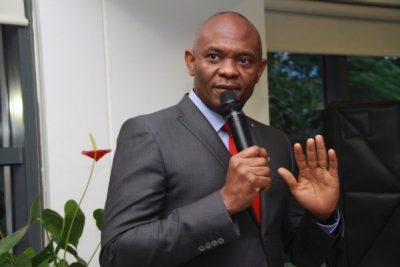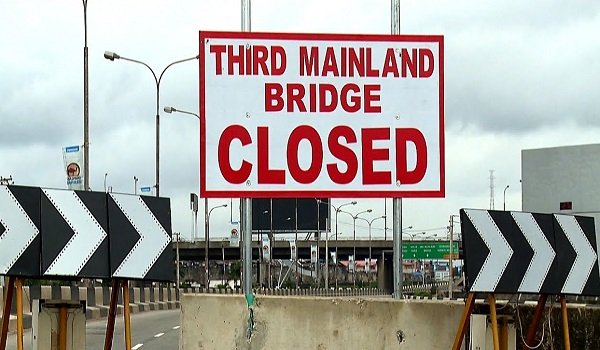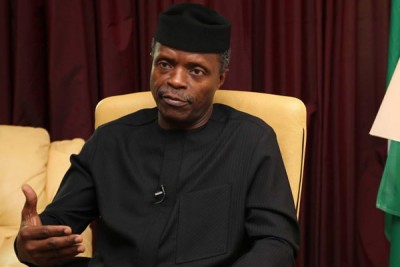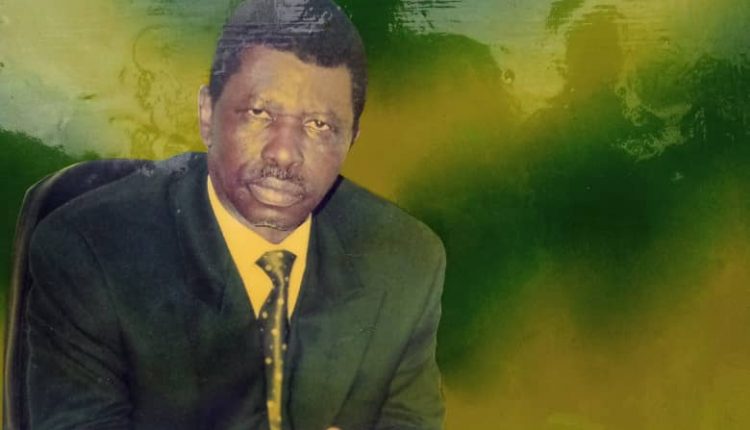Buhari, Saraki, Dogara Meet to Fast-track Passage of 2018 Budget
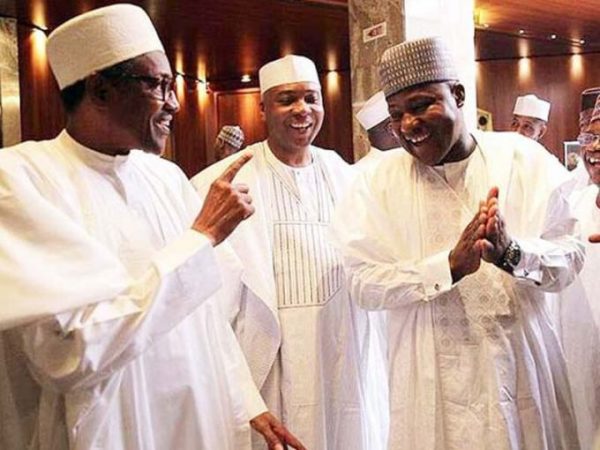
• N’Assembly approves MTEF, increases oil benchmark to $47/b
• Appropriation Bill passes second reading
Barring any unforeseen circumstances, there are indications that the legislature is set to accede to the request by the executive for the passage of the 2018 budget before the end of 2017.
The rush to pass the bill is part of the National Assembly’s bid to avoid blame for the delay of its passage, even though the bill was not presented early enough by the executive.
In furtherance of this objective, THISDAY gathered Tuesday that President of the Senate, Dr. Bukola Saraki, and Speaker of the House of Representatives, Hon. Yakubu Dogara, met with President Muhammadu Buhari on Monday night at the State House, Abuja.
Saraki and Dogara had been scheduled to meet with the principal officers of both chambers on Monday night also, but the meeting with the principal officers was rescheduled for Tuesday night where the outcome of the meeting with Buhari was meant to be discussed.
A credible source told THISDAY that the rush to pass the budget bill informed the decision of the lawmakers to overlook certain mistakes made by the executive.
“The National Assembly just wants to do the executive’s bidding, so that Nigerians would not blame us for the delay.
“This is why we went against procedure to even allow the submission of the budget estimates before the MTEF (Medium Term Expenditure Framework) was passed.
“As we all know, the approved assumptions of the MTEF are used to prepare the budget estimates, so the current arrangement is procedurally wrong.
“We just passed the MTEF today, but the budget estimates are already with us. But would Nigerians understand that? Many just want to hear that the budget has been passed,” the source said.
He explained that the National Assembly was eager to avoid a situation that would give room to the executive to heap the blame on it, even though we cannot say this budget bill was submitted early enough.
In furtherance of the legislature’s objective to get the budget passed before the end of the year, the National Assembly Tuesday suspended plenary for two weeks so that the heads of ministries, departments and agencies could defend their budgets during the period.
It also approved the 2018-2020 Medium Term Expenditure Framework/Fiscal Strategy Paper (MTEF/FSP) and adopted the recommendation that $47 per barrel be set as the benchmark price for oil for the 2018 fiscal year as opposed to $45 per barrel which was proposed by the executive.
However, other assumptions proposed by the executive were approved, including an oil production estimate of 2.3 million barrels per day (mbpd), including condensates, an exchange rate of N305/US$ for 2018, real GDP growth of 3.5 per cent and the inflation rate of 12.4 per cent.
Other approvals for the 2018 fiscal year included: Gross Federally Collectible Revenue of N11.983 trillion; Net Federally Collectable Revenue of N7.545 trillion; Net Oil and Gas Revenue of N6.387 trillion; Net Non-Oil Revenue of N5.279 trillion; FGN Retained Revenue of N5.646 trillion; Proposed Expenditure of N8.612 trillion; Fiscal Deficit of N2.005 trillion (1.77%) of GDP; and New Borrowings of N1.699 trillion.
Other assumptions that were approved are: Statutory Transfers of N456.46 billion; Debt Service of N2.014 trillion; Sinking Fund of N220 billion; Aggregate Expenditure of N8.612 trillion; Total Recurrent (non debt) of N3.494 trillion; Personnel Cost (MDAs) of N2.122 trillion; Capital Expenditure (inclusive of transfers) of N2.652 trillion; Special Intervention (Recurrent) of N350 billion; and Special Intervention (Capital) of N150 billion.
In the Senate, the approval followed the adoption of the recommendations of the Senate Committees on Finance, Appropriation, and National Planning and Economic Affairs while in the House, the approval was a sequel to the adoption of its Committees on Finance, Appropriation, and National Planning and Economic Affairs.
The lawmakers further resolved to insert a clause in the 2018 Appropriation Act, making it mandatory to revert to the National Assembly for any expenditure arising from funds in excess of the budget benchmark.
In both chambers, the 2018 budget bill also passed the second reading, paving the way for the committees to invite the MDAs to defend their respective budget heads.
Plenary would resume December 19, 2017, Saraki and Dogara announced, adding that the report of the Committee on Finance and Appropriation on the 2018 budget was expected to be laid on the same day.
“There will be a public hearing on the budget. We are looking at Monday, the 11th of December, however, in the next few days, an announcement will be made – we expect attendance by all senators,” the Senate President said.
Saraki sounded a note of warning to heads of the MDAs to adhere to and respect invitations and timetables of the committees.
“We know that the timetable is very tight and we will be suspending plenary today for us to start the defence of the budget. Committee chairmen and members should please ensure that they keep to the timetable.
“This is not a time for excuses by ministers or heads of parastatals to be travelling and not being able to attend defence (sessions). We don’t have the time. It is a very short time that we have and we expect all the MDAs to respect their invitations and be here on time so that the committees can wrap up and be able to present their reports by the time we come back on Tuesday, the 19th,” Saraki said.
In a separate development, the Senate set up an ad hoc committee to investigate the local content elements and cost variations relating to the $16.352 billion Egina oil field project operated by French oil multinational Total and two related deep offshore oil field projects – Bonga Southwest and Zabazaba projects.
The committee will be headed by Senator Adeola Olamilekan (Lagos APC).
The resolution to investigate the Egina project, which at inception in 2008 was estimated at $6 billion, followed a motion sponsored by Adeola and 18 others, who noted that several contractors involved in the project, had engaged sub-contractors to provide various aspects of the project components.
Adeola said the cost components of the project had been reviewed twice while there have been petitions and queries raised about its local content component.
He also expressed concern that the government and international oil companies were about to embark on the Bonga Southwest and Zabazaba projects with serious local content implications and sharply differing cost variations.
Egina project is located within the Oil Mining Lease (OML) 130 and covers an area of 500 square miles. It is being developed by Total Exploration and Production Nigeria Ltd (24 per cent) in partnership with CNOOC Energy Nigeria Ltd (45 per cent), Petrobras (16 per cent) and Sapetro (15 per cent) and will contribute an estimated 200,000 bpd to Nigeria’s daily output from the planned 2018 commencement date.
Copyright MMS Plus.
All rights reserved. This material, and other digital content on this website, may not be reproduced, published, broadcast, rewritten or redistributed in whole or in part without prior express written permission from KINGS COMMUNICATIONS LIMITED.



